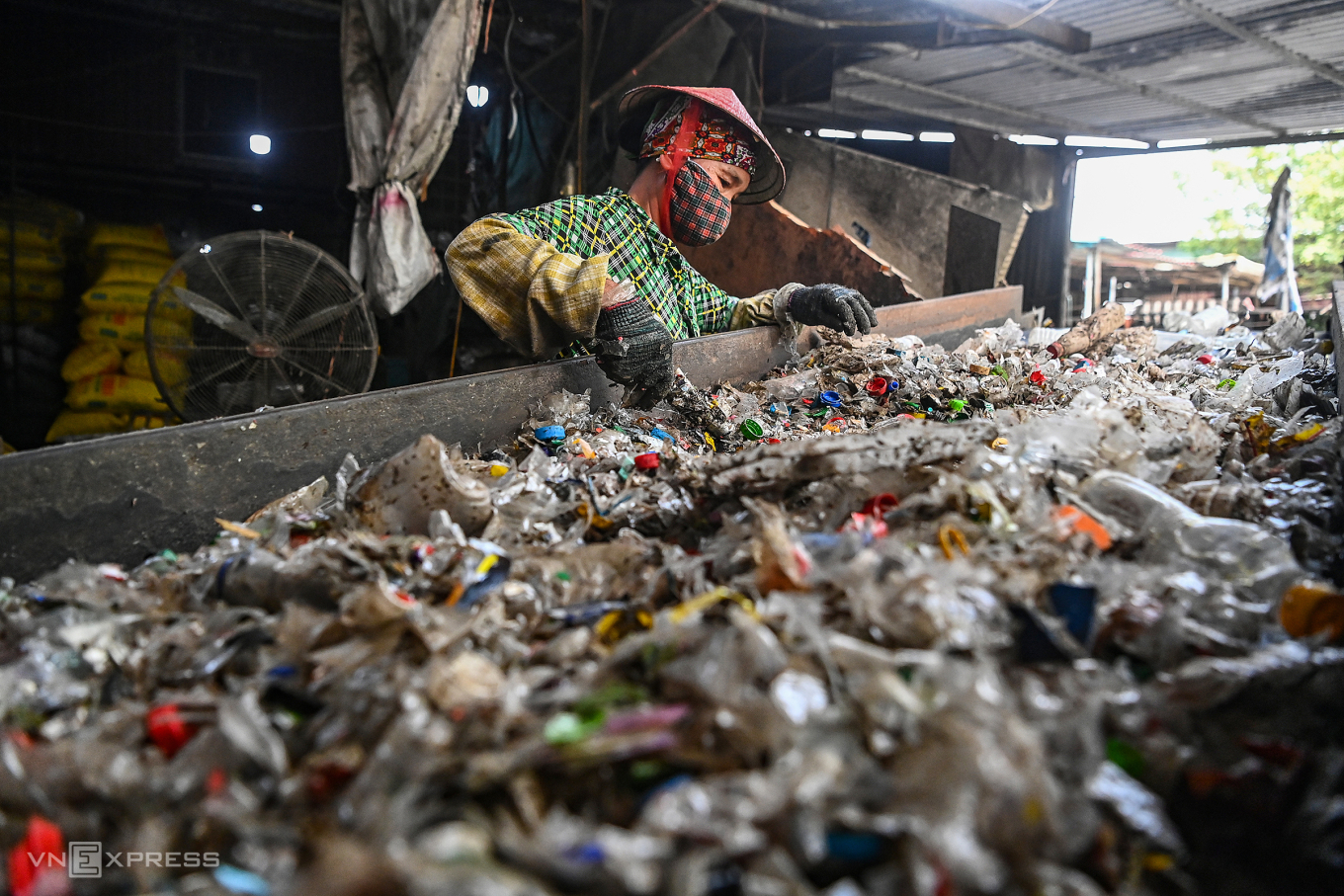On 10/7/2025, the Hanoi People's Council passed a resolution on support and incentives for recycling activities using modern technology. Accordingly, businesses and individuals investing in or producing recycled products will receive tax and fee incentives.
Specifically, they will be exempt from land rent for six years and receive waivers for 20 types of fees, including project appraisal fees, environmental protection fees, water resource exploitation and usage fees, and business registration fees.
For recycling waste, businesses and individuals are exempt from land rent for 10 years and receive similar fee waivers as those producing recycled products. In addition, they are exempt from corporate income tax for the first four years and receive a 50% reduction for the next nine years.
 |
Scrap metal village in Quang Phu Cau commune, Hanoi, 9/2022. Photo: Giang Huy |
Scrap metal village in Quang Phu Cau commune, Hanoi, 9/2022. Photo: Giang Huy
Recycled product manufacturers will also receive 100% support for advertising fees, up to 200 million VND, and 50% support for display and sales fees at major shopping centers and supermarkets (not exceeding 100 million VND) annually.
Other support includes fees for activities such as intellectual property rights certification, eco-labels, branding, training, and hiring technical staff.
If they carry out these activities themselves, the expenses can be included in production costs.
To receive support, businesses and individuals must produce recycled products from five types of waste: plastic, glass, paper, metal, and rubber, with a recycled content of 5-22% in the final product. Modern production techniques, as specified by the competent authority, must be used for recycled products.
Annually, they must implement promotional policies, discounts, and loyalty programs to encourage consumers to use recycled, environmentally friendly products.
The city also encourages green products by prioritizing the use of recycled materials in procurement or public investment projects under 20 billion VND. This is a mandatory criterion and a preferential point when preparing bidding documents for public projects in the city.
Hanoi currently generates about 7,500-8,000 tons of household waste daily, one-third of which is recyclable, mostly plastic and paper.
Regarding plastic, the city generates over 1,400 tons daily, over 60% of which is single-use plastic and plastic bags. Only 20% of collected plastic is recycled, mainly by households and small-scale village industries. Moreover, they only recycle hard, high-value plastics. Low-value plastics like plastic bags are mostly disposed of in landfills.
Thuy Truong












